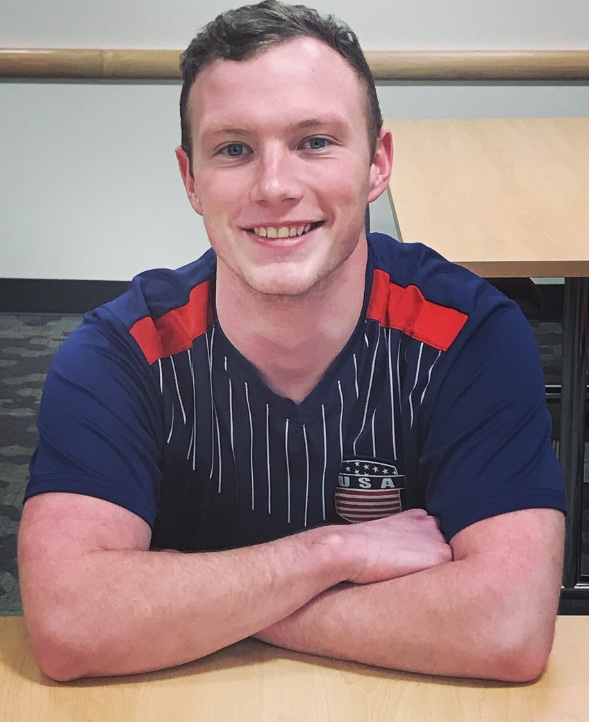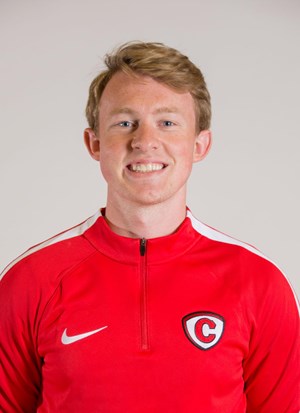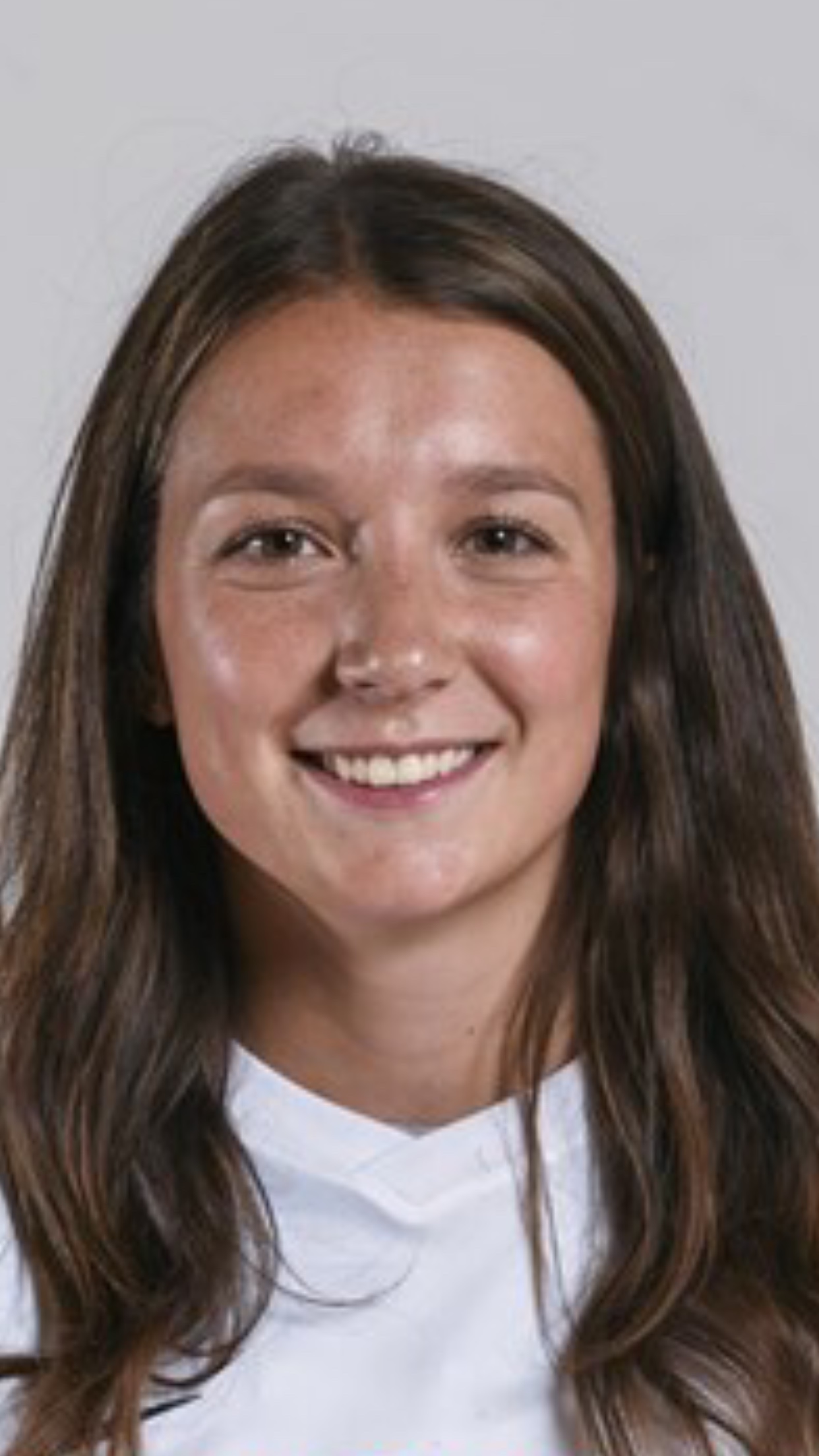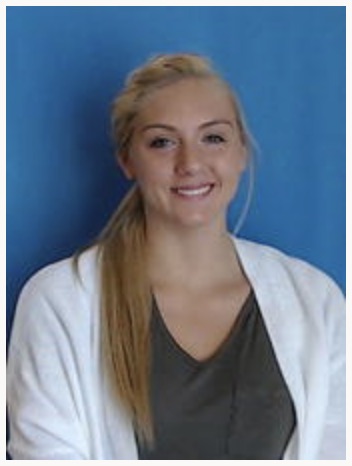Celebration of Scholars
CO2 Sensitivity of Behaviorally Inhibited Individuals
 Name:
Mackenzie Counard
Name:
Mackenzie Counard
Major: Neuroscience & Psychology
Hometown: Brussels, WI
Faculty Sponsor: Paul Martino
Other Sponsors: Dan Miller, Justin Miller, Denise Cook-Snyder
Type of research: Independent research
 Name:
Ben Alt
Name:
Ben Alt
Major: Exercise Science
Hometown: Marshfield, WI
Faculty Sponsor: Paul Martino
Other Sponsors: Dan Miller, Justin Miller, Denise Cook-Snyder
Type of research: Independent research
 Name:
Conor Grant
Name:
Conor Grant
Major: Neuroscience
Hometown: Johnsburg, IL
Faculty Sponsor: Paul Martino
Other Sponsors: Dan Miller, Justin Miller, Denise Cook-Snyder
Type of research: Independent research
 Name:
Sean Hughes
Name:
Sean Hughes
Major: Biology
Hometown: Burbank, IL
Faculty Sponsor: Paul Martino
Other Sponsors: Dan Miller, Justin Miller, Denise Cook-Snyder
Type of research: Independent research
 Name:
Shannon Kafura
Name:
Shannon Kafura
Major: Neuroscience
Hometown: Kenosha, WI
Faculty Sponsor: Paul Martino
Other Sponsors: Dan Miller, Justin Miller, Denise Cook-Snyder
Type of research: Independent research
 Name:
Kyle Mueller
Name:
Kyle Mueller
Major: Neuroscience
Hometown: St. Cloud, MN
Faculty Sponsor: Paul Martino
Other Sponsors: Dan Miller, Justin Miller, Denise Cook-Snyder
Type of research: Independent research
 Name:
Jessica Sendef
Name:
Jessica Sendef
Major: Neuroscience & Psychology
Hometown: Oswego, IL
Faculty Sponsor: Paul Martino
Other Sponsors: Dan Miller, Justin Miller, Denise Cook-Snyder
Type of research: Independent research
 Name:
Samantha Sisto
Name:
Samantha Sisto
Major: Neuroscience
Hometown: Crystal Lake, IL
Faculty Sponsor: Paul Martino
Other Sponsors: Dan Miller, Justin Miller, Denise Cook-Snyder
Type of research: Independent research
 Name:
Hannah Skendziel
Name:
Hannah Skendziel
Major: Biology
Hometown: Pleasant Prairie, WI
Faculty Sponsor: Paul Martino
Other Sponsors: Dan Miller, Justin Miller, Denise Cook-Snyder
Type of research: Independent research
 Name:
Johnhoy Stephens
Name:
Johnhoy Stephens
Major: Biology
Hometown: Beach Park, IL
Faculty Sponsor: Paul Martino
Other Sponsors: Dan Miller, Justin Miller, Denise Cook-Snyder
Type of research: Independent research
 Name:
Elle Tattoni
Name:
Elle Tattoni
Major: Neuroscience
Hometown: Elburn, IL
Faculty Sponsor: Paul Martino
Other Sponsors: Dan Miller, Justin Miller, Denise Cook-Snyder
Type of research: Independent research
 Name:
Erin Walz
Name:
Erin Walz
Major: Neuroscience
Hometown: Elk Grove Village, IL
Faculty Sponsor: Paul Martino
Other Sponsors: Dan Miller, Justin Miller, Denise Cook-Snyder
Type of research: Independent research
 Name:
William Zocher
Name:
William Zocher
Major: Neuroscience
Hometown: Middleton, WI
Faculty Sponsor: Paul Martino
Other Sponsors: Dan Miller, Justin Miller, Denise Cook-Snyder
Type of research: Independent research
Abstract
Behaviorally inhibition (BI) is believed to be a genetically determined trait that affects about 33% of the population. These individuals also tend to respond to stressful situations differently than Non-Behaviorally inhibited (Non-BI) individuals. In our laboratory, we have been able to display differences in how BI people respond to CO2 differently compared to Non-BI people through our current studies comparing breathing, heart rate, and blood pressure. In this study, we sought to learn how sensitive BI individuals are to CO2 compared to Non-BI individuals. To demonstrate this, our group will exposed participants to a 15 minute control period to establish baseline breathing, heart rate, and blood pressure followed by a four minute period breathing each of the 3 levels of elevated CO2 which include 3%, 5%, and 7%, respectively. We hypothesized that the mechanism with which BI individuals respond to elevated CO2 iwould be different than that of Non-BI people, and we predicted that the slope of the CO2 sensitivity (inspired minute ventilation (L/min)/ %CO2) of BI individuals would be different than that of Non-BI individuals.
Submit date: March 24, 2019, 10:49 p.m.
